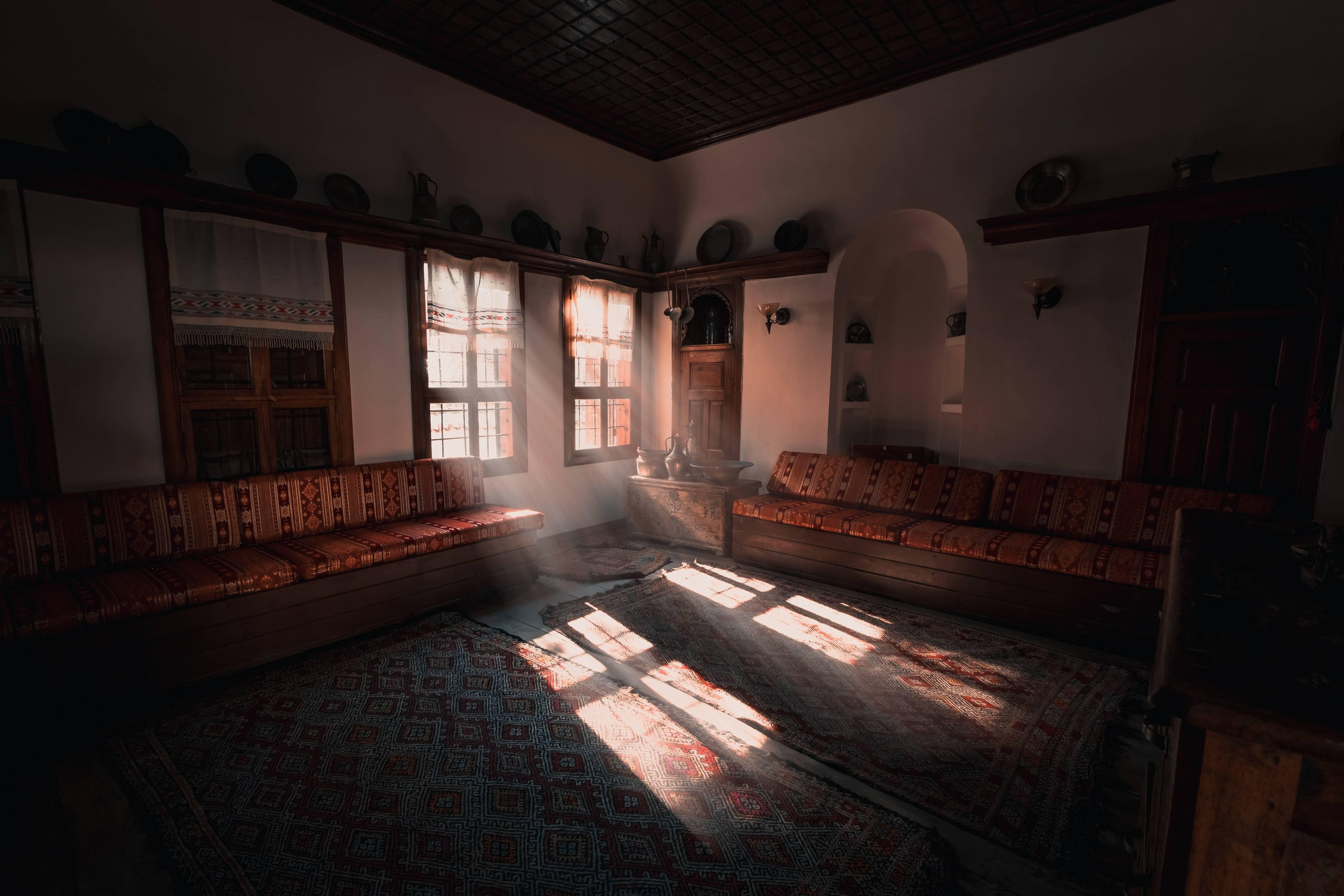Uwais al-Qarani
[radiyallahu anh]
Abu Amr Uwais ibn Amir ibn Juz’ ibn Malik al-Qarani, a pious sufi from Yemen and one of the most virtuous of the Tabi’in, lived during the lifetime of the Prophet Muhammad [sallallahu alayhi wa sallam]. His exact birth and death dates remain uncertain, but his life is marked by profound devotion and humility. Although he longed to see the Prophet [sallallahu alayhi wa sallam], his duty to care for his ailing mother prevented him from traveling to Medina. Despite this, his faith was unwavering, and he believed in the Prophet [sallallahu alayhi wa sallam] without ever meeting him. For this reason, though he did not attain the status of a Sahabi, he was honored as the most distinguished of the Tabi’in.
The Prophet [sallallahu alayhi wa sallam] spoke highly of Uwais al-Qarani, praising his unmatched sincerity and advising his companions to seek him out and request his prayers.

A Glimpse into His Life
After the passing of the Prophet [sallallahu alayhi wa sallam], when Umar ibn al-Khattab and Ali ibn Abi Talib [radiyallahu anhuma] visited Kufa, Umar [radiyallahu anh] addressed the people of Najd during a sermon. Turning his face toward them, he asked,
- O people of Najd, stand up!
When they rose, he continued,
- Is there anyone among you from Qaran?
- Yes, there is, they replied, and brought forth a few men. Umar [radiyallahu anh] inquired about Uwais, but they replied,
- We do not know him.
Umar exclaimed,
- The Prophet sallalalhu alayhi wa sallam spoke to me! Truly, you must know him!
One man stepped forward and said,
- He is an insignificant man, unworthy of notice. He avoids people, lives in solitude, and grazes camels in the valley of Urayna. He does not join the gatherings of men, nor does he share their food. He neither rejoices with their happiness nor weeps with their sorrow. He is often seen smiling when others cry.
Umar [radiyallahu anh] declared,
- It is he whom we seek.
Accompanied by Ali [radiyallahu anh], Umar traveled to the valley, where they found Uwais in prayer. Allah had sent an angel to tend to his camels. Sensing their presence, Uwais shortened his prayer and greeted them.
Umar approached him and asked,
- What is your name?
- Abdullah (Servant of Allah), Uwais replied.
- We are all servants of Allah, but what is your specific name? Umar pressed.
- Uwais, he answered.
- Show me your right hand, Umar requested.
When Uwais revealed his hand, Umar observed the mark described by the Prophet [sallallahu alayhi wa sallam] and kissed it reverently.
- The Messenger of Allah [sallallahu alayhi wa sallam] sends you his greetings, Umar said, and has instructed us to ask you to pray for the ummah.
Humbled, Uwais replied,
- You are more worthy of offering such prayers, O Commander of the Faithful.
- Indeed, I do,” Umar responded, “but fulfill the command of the Messenger of Allah.
Moved, Uwais asked for the Prophet’s cloak, saying,
- Allow me to don this cloak and beseech Allah on behalf of the ummah.
Uwais then withdrew to a secluded spot, placing the cloak before him and prostrating. His voice trembled as he supplicated:
“O Allah, I shall not wear this cloak until You forgive the entire ummah of Muhammad [sallallahu alayhi wa sallam]. The Prophet entrusted me with this task, Umar and Ali have fulfilled their duties, and now I leave the rest to You.”
A voice from the unseen replied,
“I have granted you forgiveness for some of them. Now wear the cloak.”
Uwais persisted,
“I will not accept partial forgiveness; I seek forgiveness for all!”
As he continued his plea, Umar and Ali approached to witness the scene. Sensing their presence, Uwais sighed deeply and said,
- Had you not come, I would not have ceased until Allah granted forgiveness to the entire ummah of Muhammad.

When the people of Qaran returned from Kufa, Uwais al-Qarani [radiyallahu anh] began to gain reverence and admiration among his tribe. Yet, he sought none of it; the weight of worldly regard only burdened his heart. To escape this unwanted attention, he fled to Kufa, retreating into solitude. From then on, none but Herim ibn Hayyan [radiyallahu anh] encountered him.
Herim recounts: "Having heard of Uwais’s exalted status in intercession, I yearned to meet him. I journeyed to Kufa and searched diligently until, by Allah’s decree, I found him along the banks of the Euphrates. He was performing ablution and washing his garments. Recognizing him immediately, I greeted him with salam. He returned my greeting and glanced at me briefly. When I extended my hand for a handshake, he did not offer his.
- O Uwais, may Allah’s mercy be upon you. How are you? I asked, my voice trembling with affection and sorrow at the sight of his frail state. Overwhelmed, I began to weep. He, too, wept and replied,
- O son of Hayyan, may Allah grant you long life. How did you find me? How did you know I was here?
- How is it, I asked in astonishment, that you know my name and my father’s, though you have never met me?
He answered,
- The One who knows all things informed me. The souls of believers are familiar with one another, even if their bodies have never met.
I requested,
- Narrate to me a hadith from the Messenger of Allah [sallallahu alayhi wa sallam].
- I never met him, he replied, but I have heard his words from others. Yet, I do not wish to be a narrator, a jurist, or a preacher, for my task is with my own soul, and I cannot forsake it.
- Then recite to me an ayah from the Qur’an, I implored.
At this, Uwais began with “a‘udhu billahi min ashshaytan irrajim,” but his voice faltered, and he broke into sobs. Then, he recited:
"And I did not create the jinn and mankind except to worship Me." (Adh-Dhariyat 56)
Turning to me, he asked,
- O son of Hayyan, what brought you here?
- I came to find peace and solace with you, I replied.
He responded firmly,
- I have never known one who recognizes Allah and seeks tranquility with anyone but Him.
- Then give me advice, I pleaded.
- When you lie down to sleep, place death beneath your pillow. When you rise, hold it before your eyes. Do not look at the smallness of a sin but reflect on the greatness of the One against whom it was committed. To consider a sin insignificant is to belittle Allah [jalla jalaluhu].
- Where do you suggest I reside? I asked.
- In Sham, he said.
- How will I sustain myself there?
- Stay far from hearts adorned with the marks of idolatry, hearts that reject admonition, he replied.
- Advise me further, I begged.
He continued,
- O son of Hayyan, your father has passed, as have Adam, Hawwa, Nuh, Ibrahim, Musa, Dawud, and Muhammad [sallallahu alayhi wa sallam]. Abu Bakr, the Prophet’s successor, has departed, and my brother Umar has also died. Ah, my dear Umar…
- May Allah’s mercy be upon you, I interrupted. Umar has not yet passed away.
- The Most High has informed me of his death, he said solemnly. Soon, you and I shall follow him.
He then recited salawat, prayed, and advised me further:
- Cling firmly to the path shown in the Book of Allah and upheld by the righteous. Never let the remembrance of death escape you, not for a moment. When you return to your people, counsel them with wisdom and do not withhold advice from Allah’s creation. Beware of deviating from the path of Ahl as-Sunnah; even a single misstep could plunge you unknowingly into ruin.
After offering more supplications, he said,
- O son of Hayyan, now leave this place. From this moment, neither you shall see me again nor I you. I shall remember you in my prayers; do not forget me in yours. Go your way, and I shall go mine.
Though I wished to accompany him, he did not permit it. Tears streamed down his face, and I, too, was overcome. We wept until he disappeared from view. After that day, I heard no more of him.


![Sufyan al-Thawri [quddisa sirruhu]](https://www.islamandsufism.org/storage/shutterstock-2135475083-1.jpg)
![Bayazid al-Bistami [quddisa sirruhu]](https://www.islamandsufism.org/storage/shutterstock-1962643396-1.jpg)